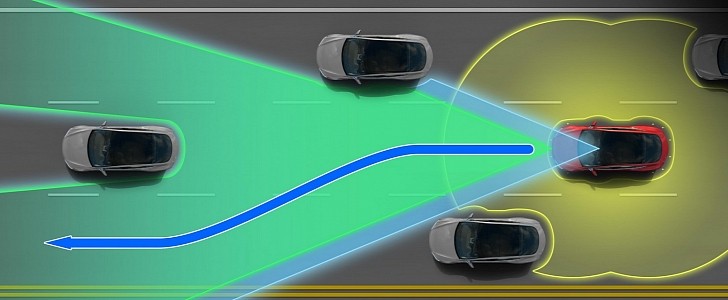Tesla must have seen that coming. A customer in California is suing the company for phantom braking episodes. In his lawsuit against Tesla, Jose Alvarez Toledo said the EV maker fraudulently hid safety risks Autopilot poses to its clients. Toledo is seeking class-action status in its legal battle. If it is granted, this lawsuit will include everyone affected by the same problem in the U.S.
According to Reuters, the plaintiff said that Tesla rushed its autonomous driving software to the market. It neither made the vehicles autonomous – they can’t drive on their own – nor ensured they are safely operated. Toledo claims this led to a “frightening and dangerous nightmare” whenever a phantom braking situation happened.
If you are not familiar with the defect, Tesla vehicles often brake for no reason in dangerous situations such as driving on the highway. If anyone is close to the braking Tesla, a severe crash can ensue. In February, the National Highway Traffic Safety Administration (NHTSA) opened a Preliminary Evaluation (PE) to verify the issue in 416,000 Model 3 and Model Y units made in 2021 and 2022.
Sadly, NHTSA ignored that the problem also affects Model S and Model X. Steve Wozniak traded his Model S for a Lucid Air because he was fed up with phantom braking. In an interview with Steve-O, he said he faced the problem “a hundred times, at least.” The Apple co-founder did not have the best impression of the system, which made the EVs start “driving like a drunk person.”
Reuters informs that the lawsuit also accuses Tesla of breaching its warranties, unfairly profiting from Autopilot, and violating California’s unfair competition law. We are not sure if the case mentions that Full Self-Driving will soon cost $15,000 to those willing to wait for their right to use the software. If it does, it should note that customers lose it if they ever sell the car equipped with it. The car also loses the software, so the buyer does not get it as well.
If you are not familiar with the defect, Tesla vehicles often brake for no reason in dangerous situations such as driving on the highway. If anyone is close to the braking Tesla, a severe crash can ensue. In February, the National Highway Traffic Safety Administration (NHTSA) opened a Preliminary Evaluation (PE) to verify the issue in 416,000 Model 3 and Model Y units made in 2021 and 2022.
Sadly, NHTSA ignored that the problem also affects Model S and Model X. Steve Wozniak traded his Model S for a Lucid Air because he was fed up with phantom braking. In an interview with Steve-O, he said he faced the problem “a hundred times, at least.” The Apple co-founder did not have the best impression of the system, which made the EVs start “driving like a drunk person.”
Reuters informs that the lawsuit also accuses Tesla of breaching its warranties, unfairly profiting from Autopilot, and violating California’s unfair competition law. We are not sure if the case mentions that Full Self-Driving will soon cost $15,000 to those willing to wait for their right to use the software. If it does, it should note that customers lose it if they ever sell the car equipped with it. The car also loses the software, so the buyer does not get it as well.





















